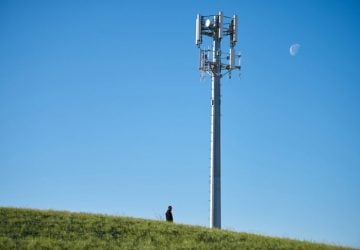- Published on
Unlock the Secrets to Engaging in Community Conversations on 5G Tower Development
Unlock the Secrets to Engaging in Community Conversations on 5G Tower Development
The introduction of 5G networks has led to widespread discussions at an international level, with a variety of interested parties like policymakers, technical specialists, and ordinary citizens actively involved. These debates crucially tackle important issues such as the potential health risks, the environmental consequences, and the visual effect of 5G infrastructure on neighborhoods. The prospect of engaging in these important societal conversations can seem overwhelming to many. The guidance that follows outlines effective methods to ensure that your opinions resonate within these key debates, aiding in making well-informed choices about the establishment of 5G installations.

Prioritize Learning About 5G: Before joining any conversation about 5G, it is essential to acquire a basic understanding of the technology, its advantages, and the ongoing disputes attached to it. The goal is not to achieve expert-level knowledge but to comprehend enough to allow for meaningful involvement in conversations. This can come from reading scientific papers, trusted technology news outlets, and advice from recognized health organizations. A well-educated position leads to better-quality discussions and the ability to thoughtfully consider differing viewpoints. Choose the Right Venue for Discussion: The discussions on 5G take place in varied environments, both in person and online. You might find these conversations happening during local community meetings, academic gatherings, social media threads, online discussion forums, or through official comment solicitation by regulatory agencies. Selecting where to voice your concerns should align with the audience you intend to address, like telecom firms, regulatory agencies, or your local community. Participate in Local Public Hearings: Local authorities often hold public hearings when considering the implementation of new technological systems like 5G. Involving yourself in these events offers a chance to voice your worries, pose questions, and propose ideas to those who make policy decisions. Watch for announcements from local officials, and coming prepared with clear and concise comments can enhance the productivity of these forums. Utilize Digital Platforms Effectively: Engagement through digital channels is powerful. The far-reaching influence of blogs, social media, and online discussion groups can magnify your perspective on 5G. Joining relevant online communities, using pertinent hashtags, or authoring knowledgeable articles can help you take part in wider conversations, find allies, and possibly sway public opinion. Join Forces with Community Organizations: There is strength in numbers. Local coalitions or advocacy organizations focused on 5G matters can escalate the visibility of collective concerns and recommendations. These entities often already have established means of communication with authorities and the general populace. Collaborating with such groups or even becoming a member can lead to more significant discourse. Communicate with Respect and Knowledge: Debates, particularly about contentious topics like 5G, can become intense. It's vital to communicate respectfully, be open to other perspectives, and answer with facts and figures. Your aim should be to enhance the conversation, leading to outcomes that affect community choices and shape public views. Participating actively in conversations about the development of 5G technology means you are playing a part in a complex decision-making network that considers public health, environmental integrity, and forward-looking technology. By advocating for respectful and educated conversation, and joining collective efforts, you make these dialogues more effective. As we move into a future with 5G at the helm, fostering informed public discourse will ensure that progress is made in a conscientious, equitable way that truly reflects the values and needs of the community.